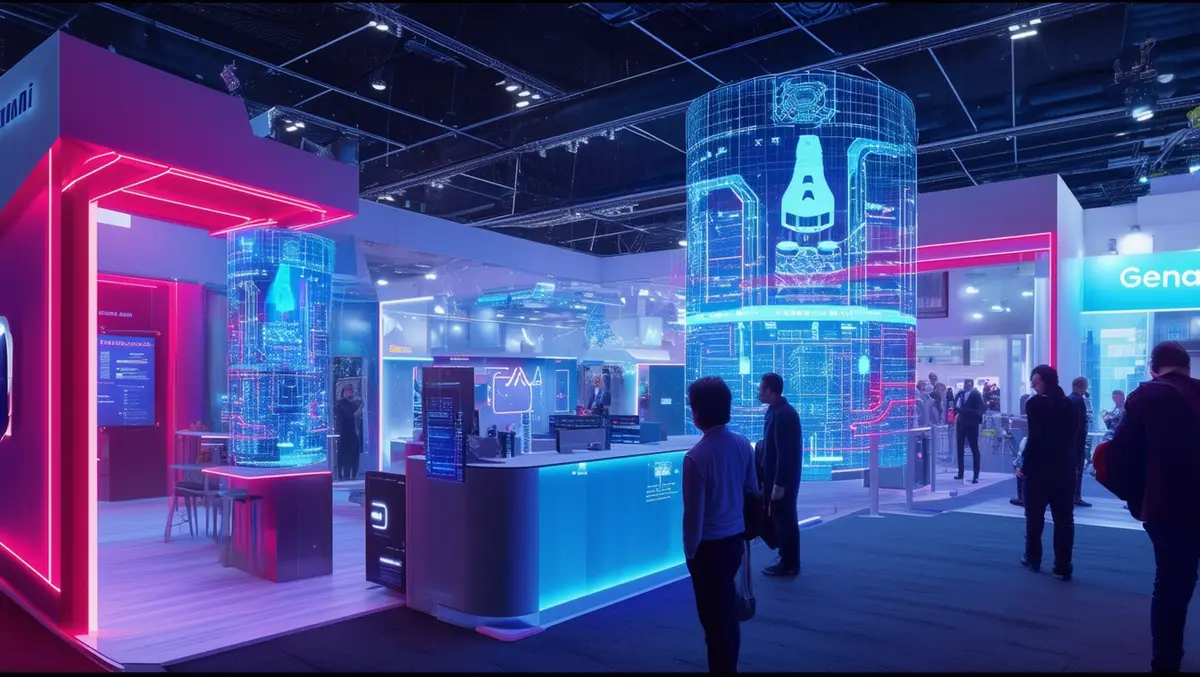
DataStax unveils major updates to AI platform at RAG++ event
DataStax is set to unveil a series of updates to its Generative AI development platform at the AI Engineer World's Fair, RAG++, in San Francisco. These updates are aimed at making retrieval-augmented generation (RAG) powered application development faster by a factor of 100. Partners such as LangChain, Microsoft, NVIDIA, and Unstructured will be part of the demonstration event.
One of the key announcements is a partnership with Unstructured.io, facilitating the rapid conversion of common document types into vector data to enable highly relevant GenAI similarity searches. In addition, DataStax will introduce LangFlow 1.0, a cloud-hosted, drag-and-drop visual interface for building, testing, and experimenting with GenAI applications. LangFlow will support integrations with popular tools such as OpenAI, Hugging Face, and MongoDB.
DataStax acquired LangFlow in April and is now incorporating it into its cloud platform. Ed Anuff, chief product officer at DataStax, said, "LangFlow 1.0's drag-and-drop interface, with dozens of integrations with the top Gen AI tools: LangChain, LangSmith, OpenAI, Hugging Face, Mistral, and others, makes it easy for developers to set up, swap, and compare all the major large language model and embedding providers." This flexibility allows developers to make significant changes in a few minutes without learning new APIs or re-coding their applications.
The partnership with Unstructured.io helps developers quickly make enterprise data ready for AI applications. Brian Raymond, founder and CEO of Unstructured, commented, "Partnering with DataStax, Unstructured equips developers with the tools to seamlessly extract and transform complex data, storing it in Astra DB Vector to power LLM-based applications. This partnership significantly enhances GenAI applications by delivering faster data retrieval, reducing computational overhead, and boosting scalability."
DataStax is also launching Vectorize, a tool to simplify vector generation. Vectorize allows developers to select an embedding service, configure it with Astra DB, and start building immediately. This integration includes popular embedding providers such as NVIDIA NeMo, OpenAI, and Azure OpenAI. Saahil Ognawala, head of product at Jina AI, said, "With Vectorize, developers gain unprecedented access to advanced AI capabilities. By integrating Jina Embeddings within Vectorize, DataStax simplifies the development journey, empowering developers to focus on refining their core functionalities without the hassle of external system integrations."
Furthermore, DataStax is releasing RAGStack 1.0, a production-ready, hosted solution for streamlining RAG implementation at an enterprise scale. RAGStack 1.0 includes several new features, such as a graph-based representation for more efficient and accurate information retrieval, and ColBERT in RAGStack with Astra DB for improved recall. It also supports Text2SQL/Text2CQL for integrating various data contexts into GenAI workflows and leverages Vectorize in RAGStack and LangChain to enable server-side embedding patterns.
Sung Kim, co-founder and CEO of Upstage, expressed enthusiasm about the collaboration, stating, "Upstage is thrilled to partner with DataStax to offer unparalleled performance and cost-effectiveness of running our full-stack LLM solution within Astra Vectorize. Our partnership with DataStax enables us to provide developers with solutions that drive tangible results, all while abstracting the complexity of embedding models from the application code."
Overall, the updates aim to provide developers with robust tools and integrations that streamline the creation and deployment of GenAI applications. The new features are designed to reduce the complexity of development processes, allowing for quicker implementation and efficient scaling of AI projects.


